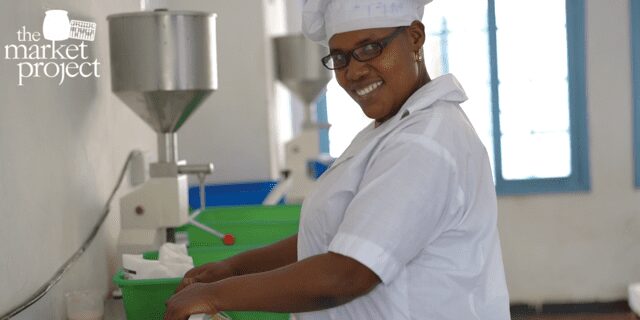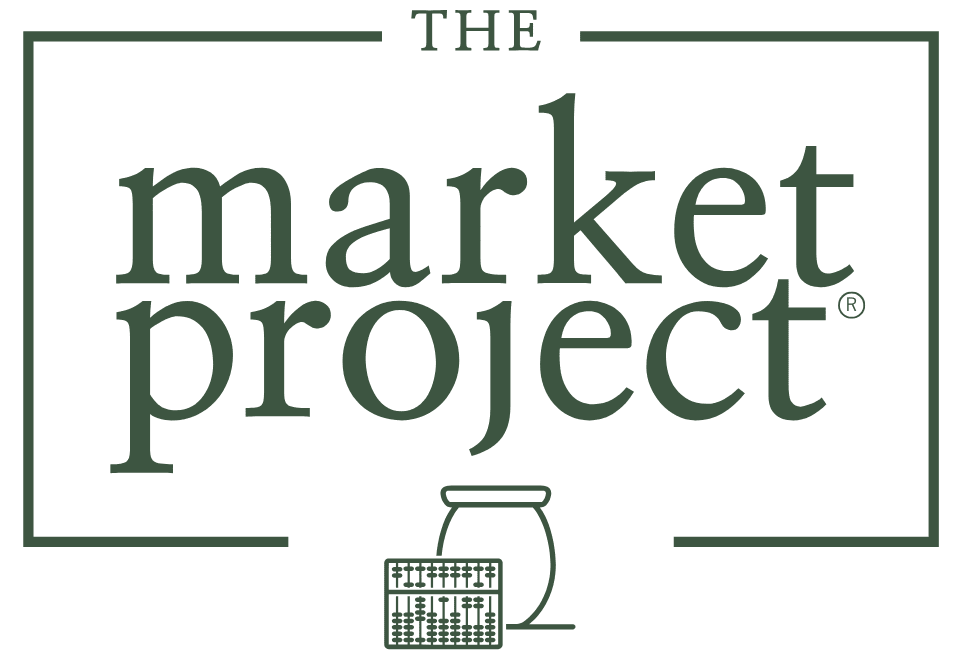But For My Job….

Human trafficking. Modern-day slavery. Exploitation. Forcing, trapping, or coercing a woman, child or man into labor, servitude, or commercial sex. Human trafficking is “an abhorrent abuse of power and a profoundly immoral crime that strikes at the safety, health and dignity of millions of people worldwide.”[1] Combatting this scourge involves not only shutting down criminal networkers and prosecuting trafficking crimes, but also addressing the economic and social factors which make people vulnerable to being trafficked.
There are no standard tools for measuring who is at-risk of being trafficked, but The Market Project, working in partnership with Eido Research, a UK-based impact research firm, has developed a framework for measuring vulnerability to trafficking in the northern Ugandan context.
We also collect data to begin to measure the impact that work in a trauma-informed environment has on healing from trauma and to evaluate the effectiveness of trauma training programs offered in the workplace.
The Market Project is committed to measuring the impact of a stable job in a trauma-informed workplace and learning over time how best to equip managers and leaders within the businesses we build.
Impact Evaluation Research
Our impact evaluation research is based on a semi-annual, confidential survey of employees at Nguvu Dairy, The Market Project’s yogurt production and sales business in northern Uganda. We collect quantitative and qualitative data about our employees and managers in the following areas:- Demographic makeup;
- Current economic health and social standing;
- Experiences of or exposure to trauma;
- Current psychological health; and
- Experience of work in the dairy.
Measuring Levels of Trauma
We know that personnel at Nguvu Dairy have had traumatic lives. From the most recent data collected in the fall of 2021, 58% of staff self-identified as having experienced significant trauma. In fact, 62% of Nguvu staff have experienced significantly high levels of trauma, such as physical or sexual assault, war, or homicide or suicide of a family member or someone close. To arrive at this conclusion, trained enumerators ask personnel at Nguvu about their experiences of 15 different types of trauma, of which 9 types are categorized as “severe”. These include physical assault, sexual assault, war or combat, trafficking, captivity, life threatening disease or illness, suicide, homicide, or serious physical accident. For each of the nine, employees give a score if they had experienced the event personally, witnessed it first-hand, knew it happened to a close family member, or none of the above. The analyst scores the responses as “significant trauma” if an individual experienced 3 traumas personally, witnessed 4 traumas, had 8 traumas happen to family members, or any combination of those. The most common experience was abuse and/or significant instability within the family.Measuring Who is At-Risk
To identify whether Nguvu employees could be identified as being “at-risk of trafficking,” the enumerator establishes a baseline amongst Nguvu’s personnel about the prevalence of trafficking in their region, as few official statistics exist for northern Uganda. In the Fall 2021 survey, a total of 42 of 178 (24 percent) of respondents knew of someone who had been trafficked, indicative that trafficking is relatively common in this region. This included two-thirds of the cleaners, security guards, and chaplains interviewed. Next, experts familiar with Uganda identified four key components, particularly relevant to this context, that make an individual “at-risk” of being trafficked.[2] These are:- History of sexual abuse;
- History of violence;
- Lack of family or social support network; and
- Extreme poverty
Other Key Findings
The Market Project’s unique model is truly life-changing for the vulnerable. We know that stable, dignity-affirming work is making a difference. In qualitative survey responses, 92% of Nguvu staff report an improvement to their income since working at the dairy, and 88% report their life has improved. We also know that strong, trauma-informed workplaces promote healing from trauma and protection from further exploitation. Opportunities to participate in trauma healing in a holistic way also help survivors of trauma, trafficking and exploitation to heal and flourish. After participating in a trauma healing group, 93% of participants said they experienced positive change, including improved relations with others, an increased sense of hope, spiritual growth, and reduced anger. And 51% reported improvements to their work environment such as higher levels of respect and greater teamwork.Demographics
What is the typical profile of a Nguvu Dairy worker in year 2 of the pandemic? In addition to most staff having experienced trauma, the impact evaluation survey also shows Nguvu staff are young and disadvantaged, with minimal education.- Average age: 24.
- Education: 47% of Nguvu workers have only a primary school education.
- Earnings: 32% are the only wager earners in their household and 44% are the primary earners.
- Housing: 40% live in a hut or garage; 43% live in shared housing.
- Hunger: 10% of Nguvu workers do not have enough food to eat more than half the time (1-3 days/week they go hungry).
Conclusion
During National Human Trafficking Prevention Month, we at The Market Project reaffirm our commitment to prevent the exploitation of those at-risk of being trafficked, and to protect and empower survivors. By creating thriving businesses in resource-scarce environments, we are harnessing the power of business to break cycles of poverty. Our theory of healing workplaces, put to practice, is having a strong, positive economic and social impact on Nguvu Dairy employees, their families, and communities in northern Uganda. Will you join us in helping prevent trafficking by protecting and empowering these vulnerable women and men with a safe job?References
[1] https://www.whitehouse.gov/briefing-room/presidential-actions/2021/12/30/a-proclamation-on-national-human-trafficking-prevention-month-2022/ [2] Two additional criteria for those “at-risk of being trafficked” but which are not prevalent in the Nguvu Dairy context are: 1) those seeking a job abroad without knowledge of safe migration; and 2) adolescent refugee girls. [3] Criteria are: experienced sexual assault; had an unwanted sexual experience; experienced physical assault; witness a suicide; witness a homicide; have no work colleague with whom they visit or speak deeply; rarely or never have someone listen to them talk about their feelings; fewer than 2 friends who know them well; family does not have enough to eat 1-3 days per week; lived through a natural disaster; or rates their economic circumstances as “very poor.”Stay up to date on our impact
Join our email newsletter to hear stories of our work.
